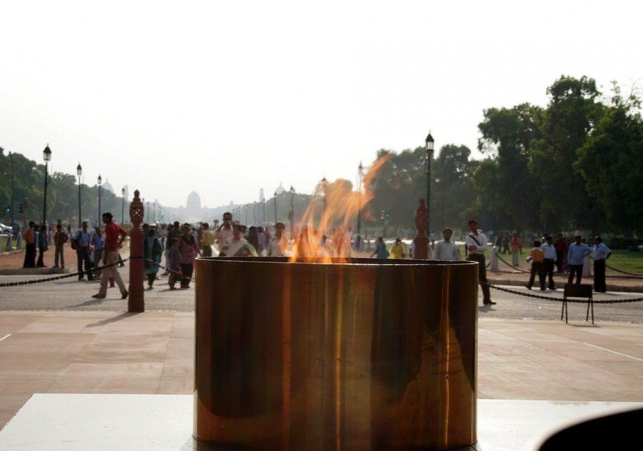

The Eternal Flame at the National War Memorial has been fused with the Amar Jawan Jyoti flame at India Gate, which is only 400 metres away. On Friday, a military ceremony was held in New Delhi to commemorate the merger.
The Amar Jawan Jyoti was inaugurated on January 26, 1971, by then-Prime Minister Indira Gandhi as a tribute for Indian soldiers lost in action during the 1971 Indo-Pak war. Bangladesh was formed as a result of India's victory at the end of the war.
Prime Minister Narendra Modi, on the other side, dedicated the National War Memorial on February 25, 2019. The National War Memorial has been inscribed with the names of up to 25,942 warriors.
The decision to integrate the Amar Jawan Jyoti and the Eternal Flame was criticized by many, including ex-servicemen and opposition figures.
Former Air Vice Marshal Manmohan Bahadur responded to the central government's decision on Twitter.
"Sir, the eternal flame at India Gate is part of India's psyche. You, I and our generation grew up saluting our brave jawans there," says the Prime Minister in a Tweet.
While on the other hand congress MP Rahul Gandhi said, "It is a matter of great sadness that the immortal flame for our brave soldiers will be extinguished today. Some people cannot understand patriotism and sacrifice - never mind... We will once again light the 'Amar Jawan Jyoti' for our soldiers."
Many others, including a former Lieutenant General, applauded the decision.
"As someone who had steered the design selection and construction of the NWM, I had been of this view all along that India Gate is a memorial to the fallen heroes of First World War."
Former Lieutenant General Satish Dua was cited as stating, "There should be no politics on the merger of Amar Jawan Jyoti & National War Memorial. It has become a trend to give a political angle to every initiative done by the Centre".